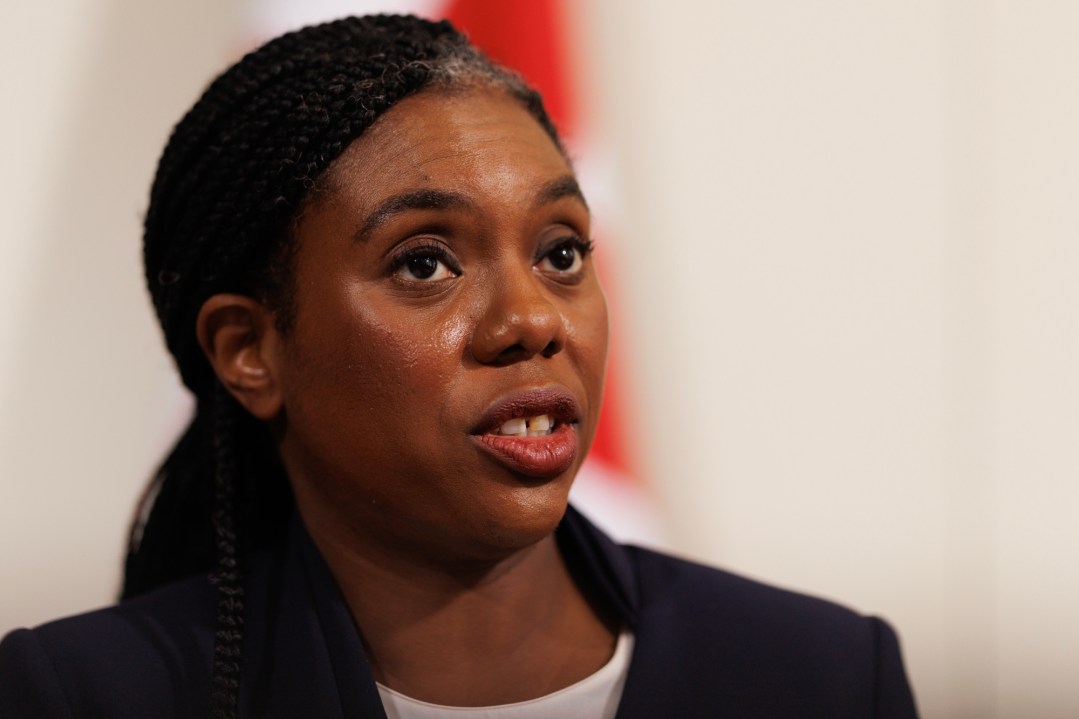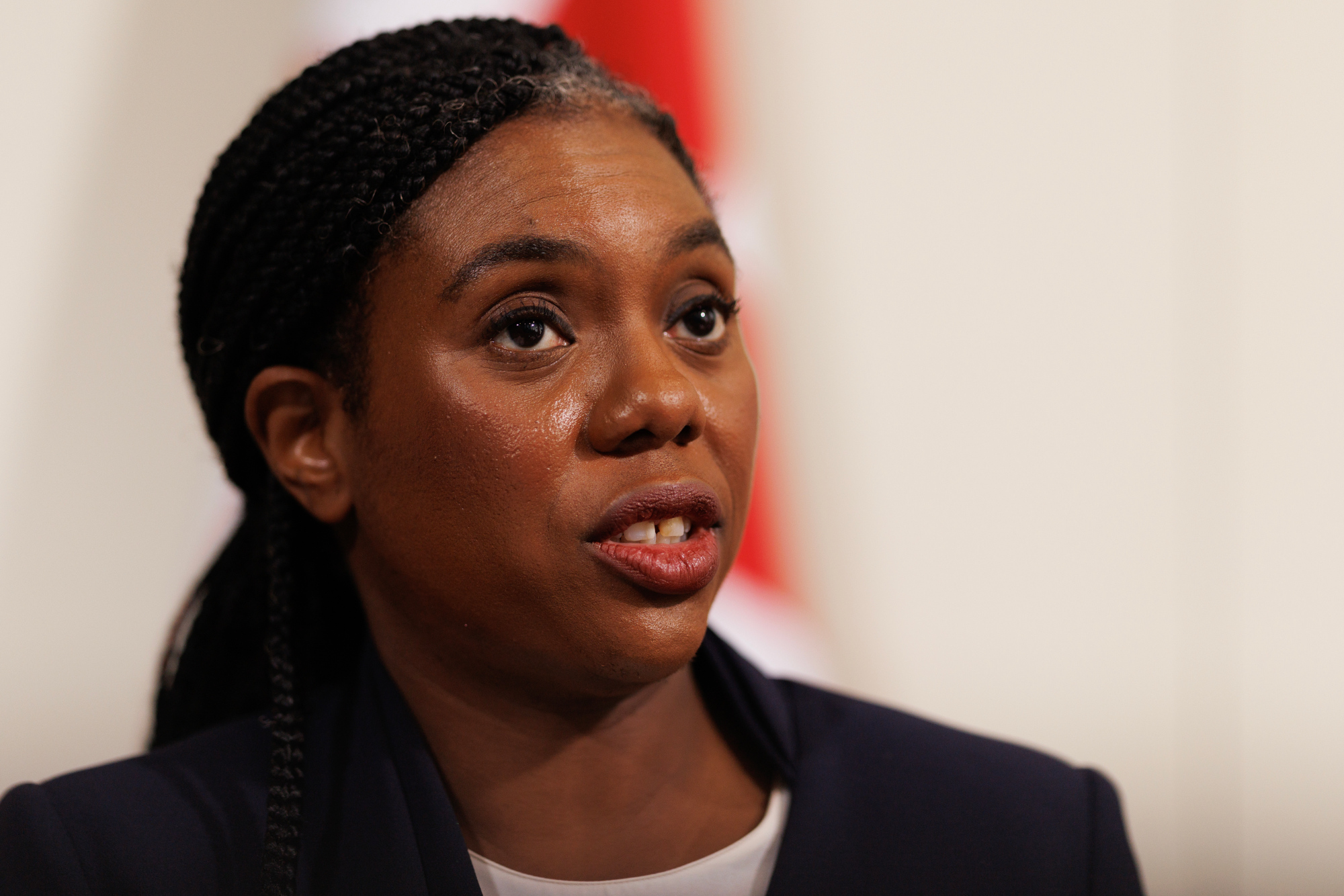The problem of evil has stumped some of the greatest thinkers in the history of human philosophy and theology. It was, however, a cinch for Kemi Badenoch.
In an interview designed to make the sometimes aloof Leader of the Opposition seem more relatable, Mrs Badenoch described how the case of Josef Fritzl made her ‘reject God’. She referred to the loss of faith as being ‘like a candle being blown out’ when she realised that while her prayers – for, inter alia, longer hair and good exam grades – appeared to have been answered, the prayers of the imprisoned Elisabeth Fritzl were not.
The dominance of an elite which essentially believes that human nature can be bribed or oppressed or educated into goodness has been a catastrophe for the last 50 years of policy making
Leaving aside the fact that Mrs Badenoch’s A level grades were three Bs and a D, it reveals a remarkably incurious attitude to the deeper questions of good and evil. If God could only exist in relation to his direct influence on a teenaged Kemi Badenoch, he wouldn’t be much of a Divinity at all. That the Leader of the Opposition seems unable or unwilling to reassess her rejection of a God who appears to have been understood entirely as a quid pro quo giver of gifts, a sort of cosmic Father Christmas, suggests that she isn’t really willing or able to give the issues of good, evil, faith and doubt the attention they need if one is going to, for instance, opine upon them in interviews.
Of course, the days of truly intellectually interesting politicians are long gone – sacrificed like so much else to the West’s valorisation of the hyper individualistic and vulgar. And it isn’t even as if Mrs Badenoch is alone: I suspect that Sir Keir, Sir Ed and Mr Farage aren’t exactly likely to knock a discussion of the Irenaean theodicy out of the park either. The problem of leaders who can’t engage with the big ideas of Western thought is not a party political one.
None of this is to say that the so-called problem of evil does not pose a challenge to the faiths of people across the world to this day. But therein lies another problem – Mrs Badenoch’s challenge to the existence of God has been made before and answered fairly convincingly.
St Augustine defined evil specifically as our actively choosing to stray from the good. Free will is necessary for us to meaningfully choose what is good but opens the door to us doing evil. The existence of evil and suffering doesn’t conflict with the goodness of God as he is neither the cause of evil, nor capable of suffering it, as nothing can meaningfully diminish his goodness. Instead, and because of that goodness, God chooses to exist alongside evil so that in the end all things might be brought back to his goodness. Prayer in the light of evil then is not the shopping list of Mrs Badenoch’s imagination, but a raw and primal lifting of the state of a fallen world to the only one who can and will do anything about it.
Of course, this answer requires you to believe human nature is flawed. This appears to be an issue for Mrs Badenoch. It is also a specific issue for a self-identified conservative. At the heart of conservatism is a necessary cynicism about human nature – we are not good, perfectible beings who can build a Utopia on earth, but fallen and sinful and with an incredible capacity to do things that are stupid and wrong. Hence the existence of evil.
Mrs Badenoch seems to have outsourced her frustration and inability to reconcile that existence of evil to God. Unprepared to come to the conclusion that humans might be at fault, God gets the blame. It is very telling of the leader of the opposition that her natural assumption to encountering something she cannot understand is to throw the whole concept in the bin and decide it can’t exist.
If domestic conservatism is going to be credible it desperately needs to have an intellectual narrative which can challenge the most damaging of liberalism’s assumptions about human nature. The dominance of an elite which essentially believes that human nature can be bribed or oppressed or educated into goodness has been a catastrophe for the last 50 years of policy making. A conservative alternative will need to have a coherent answer to the issue of human nature. Mrs Badenoch seems to have simply the same, tired, impractical view as her opponents. Conservatism in the twenty-first century will need to be able to engage intellectually with religious revival, a newly puritanical younger generation, the return of war, plague, famine and civil discord and civilisational threats. If its intellectual life is going to recover from its current critical state, it needs more mysticism, more God and more cynicism about the powers of humanity: not less.
In what was doubtless a nod to this and an attempt to ensure she doesn’t lose what few socially conservative voters she has left, Mrs Badenoch has claimed that she ‘hasn’t rejected Christianity’ but instead rejected God. Such a statement again reveals a worrying ignorance – the two are not coherently separable, especially if one is to have a doctrine of human nature which is going to survive that pesky problem of evil. Put another way, Mrs Badenoch needs to read some Augustine.








Comments